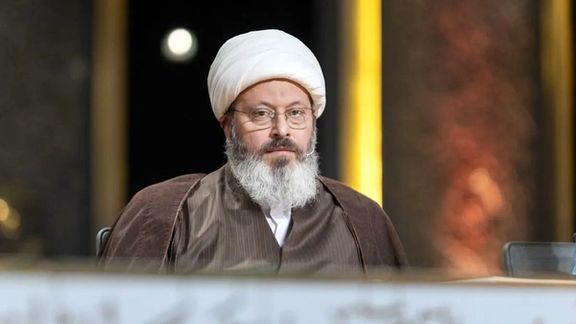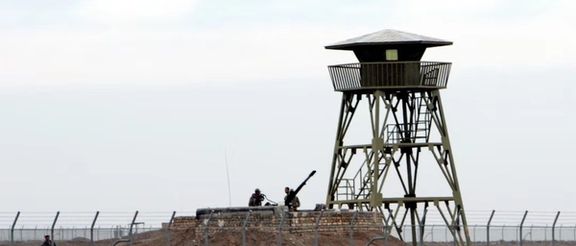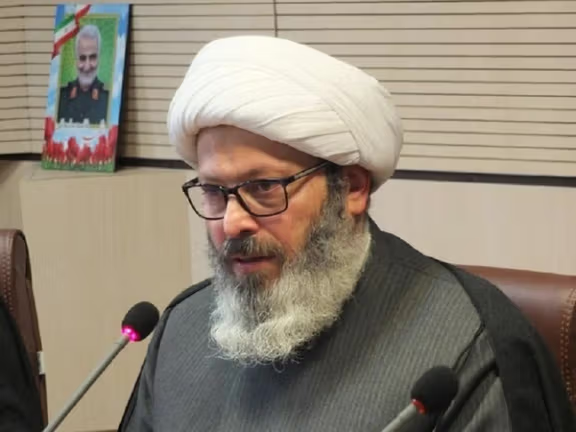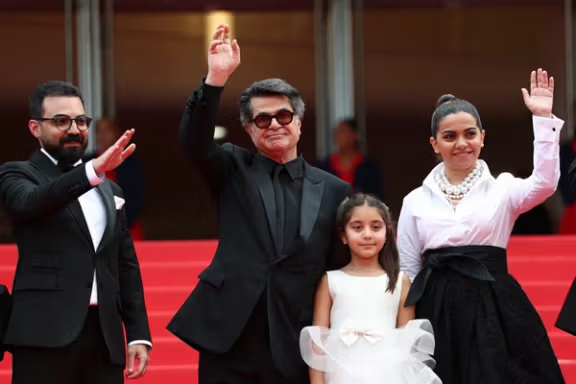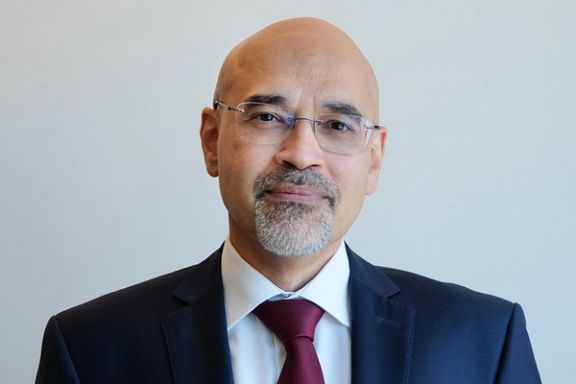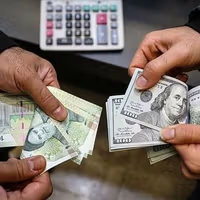Hojatoleslam Gholamreza Ghasemian was detained in Medina on Monday after sharing a video on Instagram in which he launched a scathing attack on Saudi Arabia’s recent social and cultural transformations.
“Iran in no uncertain terms condemns any attempt to harm Muslim unity, particularly in the spiritual atmosphere of the Hajj,” Iranian Foreign Minister Abbas Araghchi posted in English on X Tuesday, adding that Tehran would not allow anyone to sabotage relations with Saudi Arabia.
“The highly competent management of this year's Hajj is well appreciated by Iran."
Iran’s ambassador to Riyadh, Alireza Enayati, also appeared to reassure Saudi authorities that Tehran disapproved of Ghasemian’s comments.
“Pilgrims respect the sanctity of the Two Holy Mosques and adhere to the governing regulations," Enayati posted on X in Arabic.
"No one will approve of bad or offensive speech.”
Earlier, however, judiciary spokesman Asghar Jahangiri, representing a hardline-dominated branch of the Islamic Republic, had called Ghasemian’s arrest “unjustified and unlawful.”
Saudi authorities twice provided consular access to the detained cleric, the consular chief at Iran's foreign ministry Majid Rezapanah said on Tuesday, in what may be interpreted as a goodwill gesture.
Saudi authorities have yet to comment on the incident.
Controversial broadside
In the video recorded in Muslim holy city of Medina shortly before his arrest, Ghasemian accused Saudi Arabia of moral decline.
“You no longer need to go to Antalya (in Turkey) for casinos, brothels and obscene concerts; instead, you can go to Mecca and Medina, here!” he said in the video while expressing alarm over what he described as the “will to give dominance to atheism” in Saudi Arabia.
Ghasemian, 52, was a supporter of ultra-hardliner candidate Saeed Jalili in the 2024 Iranian presidential election. He has longstanding ties to vigilante groups involved in attacks on the British and Saudi embassies in Tehran in 2011 and 2016—incidents that led to ruptures in diplomatic relations.
While around 100 individuals were arrested over the Saudi embassy incident, several who were convicted were later quietly acquitted.
Domestic blowback
Ghasemian’s remarks have triggered a backlash within Iran, where many see them as jeopardizing recent diplomatic progress with Mideast rival Riyadh.
The moderate conservative news outlet Asr-e Iran on Tuesday criticized Ghasemian and suggested that he be detained upon return to Iran if released by Saudi Arabia.
“Given his fame and his association with certain officials, it is necessary for the Islamic Republic to immediately and explicitly distance itself from his foolish remarks so that his positions are not attributed to Tehran,” Asr-e Iran wrote.
The outlet also suggested Ghasemian may have had a “mission to cause trouble for the country”, presumably by ultra-hardliners who disapprove of Tehran’s rapprochement with Saudi Arabia and nuclear talks with Washington.
“The acts of Ghasemian and those like him must be seen in the context of conspiracies that aim to prevent normalization of Iran's relations with its surrounding world,” Salar Ahmadi, a member of the central council of the reformist Neda-ye Iranian or Iranians’ Voice Party, posted on X. “The reason: past Experience!”
Ultra-hardliners, however, rallied in support of the cleric. “We will not remain silent until Hojatoleslam Ghasemian is released from the clutches of the House of Saud,” Mojtaba Vahdati, an ultra-hardliner activist with 11,000 followers on X, posted.
Other pro-government voices warned against turning Ghasemian into a political martyr. “Don’t turn someone into a hero who will once again force the foreign ministry to plead with the Saudis,” activist Hamed Aghel posted on X, pointing out that Iran would not tolerate such accusations from a foreigner.
Recent diplomatic progress
Shi'ite Tehran and Sunni Riyadh agreed to mend fences in a 2023 deal mediated by Beijing.
Ghasemian’s comments came weeks after a major diplomatic breakthrough: a historic visit by Saudi Defense Minister Prince Khalid bin Salman to Tehran in April—the highest-level visit by a Saudi official in decades.
Prince Khalid met with Iran’s Supreme Leader Ayatollah Ali Khamenei and conveyed a message from his father King Salman bin Abdulaziz.
Tehran and Riyadh appear keen to stay in close touch as high-stakes US-Iran talks enter crunch time.
Araghchi visited Riyadh in early May to meet his Saudi counterpart and discuss the lay of the land in the region and progress in the nuclear talks.
